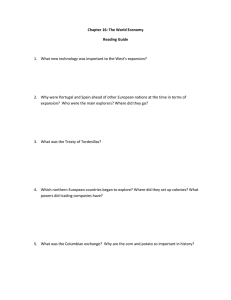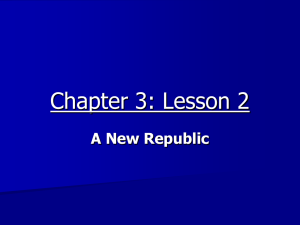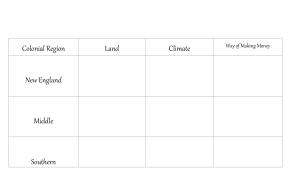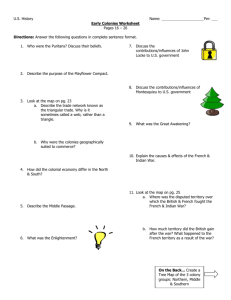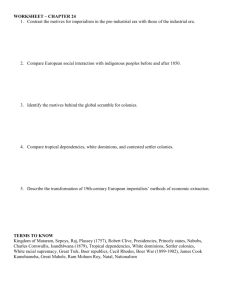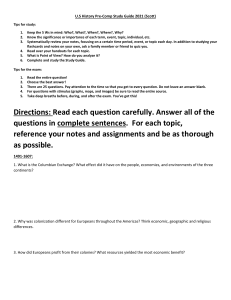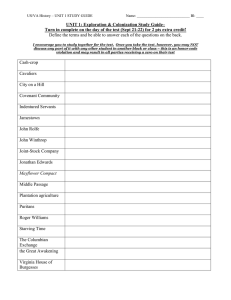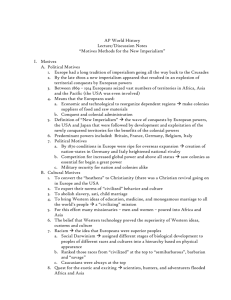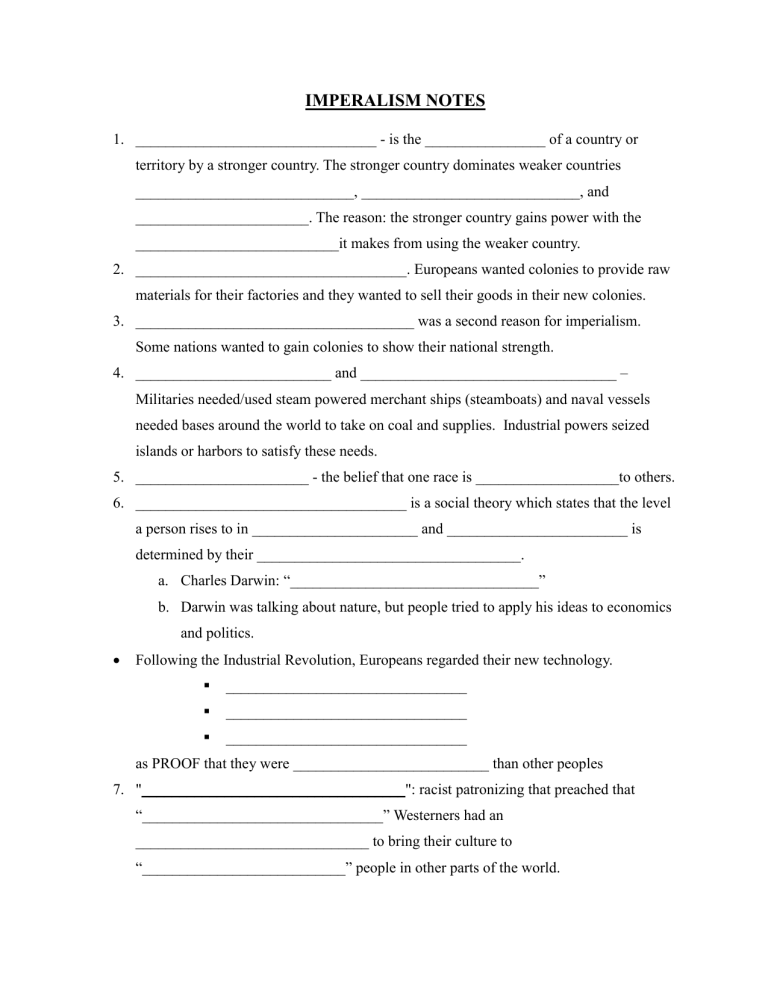
IMPERALISM NOTES 1. ________________________________ - is the ________________ of a country or territory by a stronger country. The stronger country dominates weaker countries _____________________________, _____________________________, and _______________________. The reason: the stronger country gains power with the ___________________________it makes from using the weaker country. 2. ____________________________________. Europeans wanted colonies to provide raw materials for their factories and they wanted to sell their goods in their new colonies. 3. _____________________________________ was a second reason for imperialism. Some nations wanted to gain colonies to show their national strength. 4. __________________________ and __________________________________ – Militaries needed/used steam powered merchant ships (steamboats) and naval vessels needed bases around the world to take on coal and supplies. Industrial powers seized islands or harbors to satisfy these needs. 5. _______________________ - the belief that one race is ___________________to others. 6. ____________________________________ is a social theory which states that the level a person rises to in ______________________ and ________________________ is determined by their ___________________________________. a. Charles Darwin: “_________________________________” b. Darwin was talking about nature, but people tried to apply his ideas to economics and politics. Following the Industrial Revolution, Europeans regarded their new technology. ________________________________ ________________________________ ________________________________ as PROOF that they were __________________________ than other peoples 7. "___________________________________": racist patronizing that preached that “________________________________” Westerners had an _______________________________ to bring their culture to “___________________________” people in other parts of the world. 8. English writer __________________________________________, in this 1899 poem, summarizes his view of the duties of imperial nations… 9. __________________________________ – A war/conflict between Britian and China, lasting from 1839 to 1842 over Britain’s smuggling __________________ into China. 10. _____________________________________ – An exemption of foreign residents from the laws of a country. 11. _____________________________________ – Nations gain exclusive trading rights in territory, dominate all trade, but allow the local government to make other decisions. 12. ______________________________________ – A policy proposed by the United States in 1899, under which all nations would have equal opportunities to _____________ in China. 13. #1: _______________________________ a. Economic motives included the desire to make money, to expand and control foreign trade, to create new markets for products, to acquire raw materials and cheap labor, and to export industrial technology and transportation methods. 14. #2: ________________________________ a. Political motives were based on a nation’s desire to gain power, to compete with other European countries, to expand territory, to exercise military force, to gain prestige by winning colonies, and to boost national pride. 15. #3: ________________________________ a. Religious motives included the desire to spread Christianity, to protect European missionaries in other lands, to spread European values and moral beliefs, to educate peoples of other cultures, and to end the slave trade in Africa. 16. #4: _______________________________________ a. Social (or ideological) motives were based on the belief that the white race was superior, other cultures were “primitive,” Europeans should “civilize” other peoples, great nations should have empires, and only the strongest nations survive.
